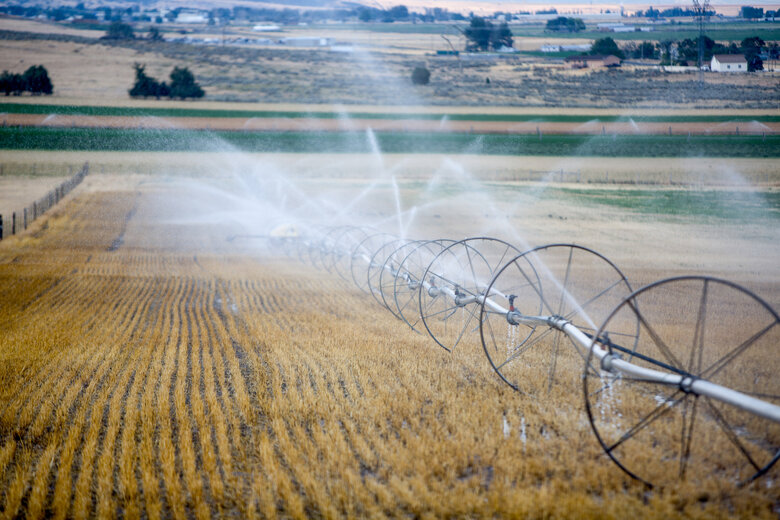
The NSW corruption watchdog says management of the state’s water resources needs to be overhauled after finding the government favoured irrigators over the environment in the Murray Darling Basin over the last ten years.
The ICAC says administrative failures within the then Department of Primary Industries – Water (DPI-W) contributed to this, including “chronic underfunding, organisational dysfunction and lack of commitment to compliance”.
It also found stakeholder consultation was skewed in favour of the irrigation industry.
The ICAC looked at numerous allegations of corruption made in relation to water manangement in Barwon-Darling area of the basin and involving ministers, government officials and irrigators that arose during operations Avon and Mezzo between August 2017 -20.
Its report handed down last Friday it says it didn’t find anyone had engaged in corrupt conduct.
However, it says water management decisions taken by the government over the last decade weren’t in keeping with the requirements of the Water Management Act, which is meant to ensure water resources are allocated at environmentally unsustainable levels.
The consistent failure by the department to act in accordance with … the WMA represents a gross failure by the department to understand and fully implement the water management principles … and was inimical to the interests of good government and to the public interest.
ICAC
“The consistent failure by the department to act in accordance with … the WMA represents a gross failure by the department to understand and fully implement the water management principles … and was inimical to the interests of good government and to the public interest,” the report says.
The commission also identified a “repeated tendency to adopt an approach that was unduly focused on the interests of the irrigation industry”.
ICAC says the DPI-W also skewed stakeholder consultation in favour of the irrigation industry while limiting the information available to groups like environmental agencies.
“As a result, the policy-making process became vulnerable to improper favouritism,” it says.
It also found:
- A failure to fully implement and audit water plans
- A need to fund studies into the ecological health of rivers
- A lack of transparency and fairness in stakeholder consultations
- Sidelining by the government of public officials with environmental roles
- Weaknesses in handling confidential and sensitive information
- Regulatory failures
The report makes 15 recommendations to “promote the integrity and good repute of public administration in relation to water management”.
The Murray Darling Basin is the largest and most complex river system in Australia with all of NSW’s inland rivers draining into it.
“Because of this, the legal framework for the management of the basin’s natural and environmental resources has a significant bearing on water resource management law and policy in NSW,” the ICAC says.
Comment below to have your say on this story.
If you have a news story or tip-off, get in touch at editorial@governmentnews.com.au.
Sign up to the Government News newsletter
1988 brought the start of the end of the any notion of independent advice being brought into actions of Government. And this impacted the thinking of governments, especially in the Water Management field.
The rise age of lobbyists and Consultancies to deliver independent advice saw the Great Water Shell game!
We lost, ‘whats good for all parties’ in this singly crucial area of Water Management in Australia. And specifically in the Murray Darling Basin. We now see the power of selective needs of commercial interests, as it continues to muddy the waters.
Sadly its a national strategic asset. But we continue to see the shell game played by the Political parties in State Government’s since then.
Will the 15 recommendations actually happen?
I agree with you entirely Kim with one exception.This is a national strategic asset as you say but rather than have the general population mentioned as a partner in any agreement the clause should always read “that on behalf of all Australians this agreement has been entered into by the Australian Government with a gaurantee that all those Australians who rely on water from the scheme for there livelihoods will get what they need as well as the environment” It should also be recognised in any agreement that in times of drought the major players and holders of storage water for crops that are not suitable for our climate must forgo there water or part thereof for the benefit of downstream farmers and other businesses